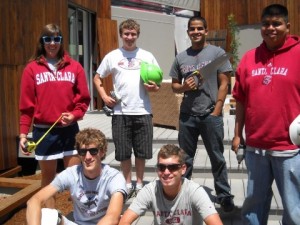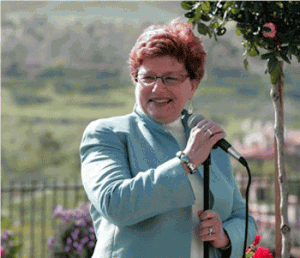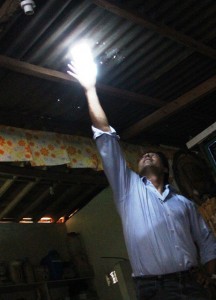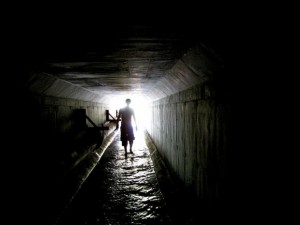 The U.S. Department of Energy announced Thursday that Santa Clara University will compete in the 2013 Solar Decathlon, joining 19 other teams of universities and colleges from around the world. Santa Clara’s undergraduate engineering students will go up against some tough schools, such as Stanford, University of Southern California, and California Institute of Technology. They will also face mostly graduate students, many of whom with professional experience. SCU students, who are 19 to 22 years old, aren’t intimidated, though. Santa Clara University hopes the third time will be the charm in one of the world’s most prestigious competitions that determines the best designer and builder of a net-zero energy house.
The U.S. Department of Energy announced Thursday that Santa Clara University will compete in the 2013 Solar Decathlon, joining 19 other teams of universities and colleges from around the world. Santa Clara’s undergraduate engineering students will go up against some tough schools, such as Stanford, University of Southern California, and California Institute of Technology. They will also face mostly graduate students, many of whom with professional experience. SCU students, who are 19 to 22 years old, aren’t intimidated, though. Santa Clara University hopes the third time will be the charm in one of the world’s most prestigious competitions that determines the best designer and builder of a net-zero energy house.
“We’ve been putting in countless hours studying, researching, and developing our concept,” says Jake Gallau ’13, student project manager for Santa Clara University’s Solar Decathlon team. “We’re confident in our design and the technology we plan to use, and we’re hoping to shock the competition in 2013, just as our alumni have done in previous years.”Gallau is referring to SCU’s 2007 team, which surprised its opponents when it won third place after a late start in the competition. The university also won third place in 2009, after finishing in the top three in seven of the ten contests of the decathlon. Judges score each team in architecture, market appeal, engineering, communications, affordability, comfort zone, hot water, appliances, home entertainment, and energy balance. The team with the highest overall score wins, but as faculty project manager and Mechanical Engineering Associate Professor Tim Hight points out, winning the Solar Decathlon isn’t the most important goal for Santa Clara University.
To assist Santa Clara University with the architectural design of the home, the students will work with University of San Francisco’s undergraduate architecture program.The students will finalize their plans and begin fundraising for the remainder of the academic year. Then, they will begin more detailed design and analysis this summer. Construction of the house will begin in the spring of 2013. Once the home is finished in the fall, the students will dismantle it, and truck it to Orange County Great Park in Irvine, Calif., where the students will have to rebuild it, operate it, and prove that it’s a functional, energy-efficient, affordable home.Since 2002, the Solar Decathlon has been held on the National Mall in Washington, D.C. For the 2013 Solar Decathlon, though, the DOE sought a new venue to promote the outreach, education, and economic benefits of energy security, renewable energy, and energy efficiency.











